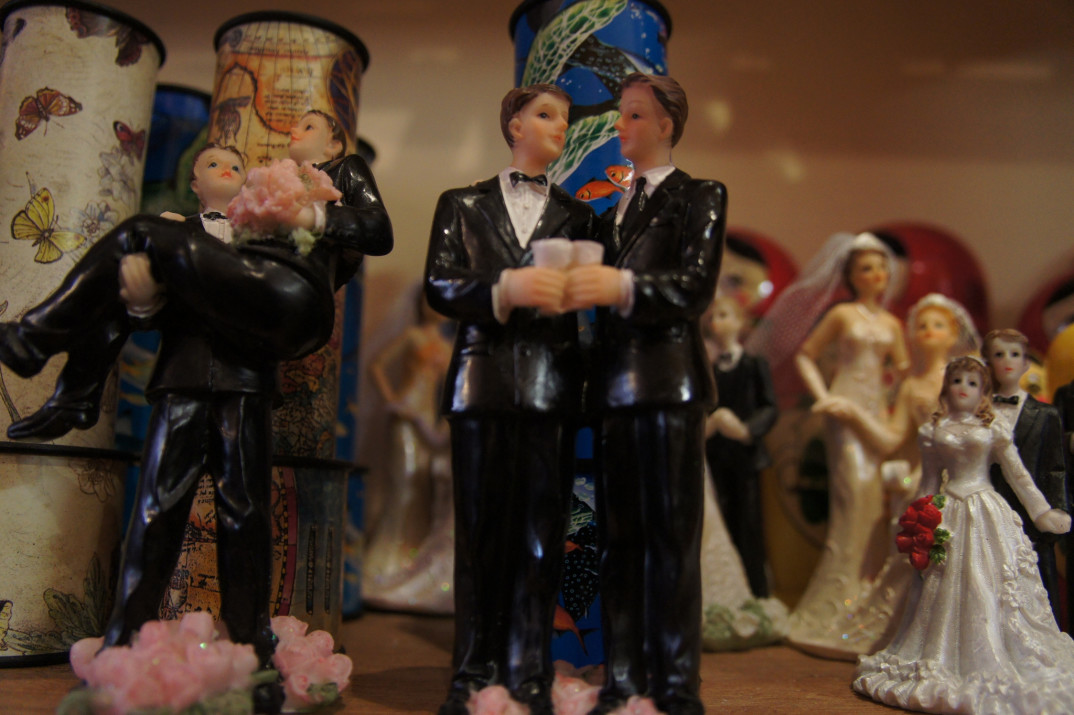On December 2nd, McLennan County Justice of the Peace Dianne Hensley was issued a public warning for refusing to perform same-sex marriages. She continued to perform marriages for heterosexual couples, but claimed that she was following her “conscience and religion” by abstaining from performing the non-straight marriages.
Hensley has been open about her policy and claimed in 2017 that she qualified for a “religious exemption” from performing this service for non-straight couples. She sees her position as grounded in her Christian faith, and therefore considers herself to be “entitled to accommodations just as much as anyone else.”
For the past several years Hensley’s office has refused to officiate same-sex marriages. In response to requests, Hensely and her staff offer a document explaining her reasoning and indicating other local qualified and willing alternative substitutes.
Hensley would not be the first public official to be reprimanded for not participating in the administration of same-sex marriages. In 2018, an Oregon Supreme Court judge was suspended for three years for refusing to conduct same-sex marriages. In 2015, in a case that garnered a great deal of national attention, Kimberly Davis, now a former county clerk in Kentucky, refused to issue marriage licenses to same-sex couples and was fired (this year she was declared vulnerable to lawsuits).
Hensley’s case is unique, however, because it is not a required part of her job to perform marriages at all. Officiating marriages is a way to earn “thousands of dollars in personal income,” but is optional for justices of the peace. Because officiating is optional, many of Hensley’s like-minded colleagues simply stopped performing them after the Supreme Court granted rights to gay couples.
The right to reasonable accommodation can be murky in cases like these. Roughly speaking, unreasonable accommodations are those that:
- Fundamentally alter the program standard
- Threaten personal or public safety
- Create an undue financial or administrative burden
Typically accommodations are seen to be unreasonable because of the first or third consideration listed; if, in order to accommodate the needs or conscience of the employee, the job itself must be fundamentally altered, then the employer is not required to make such accommodation. Perhaps relatedly, if making such an accommodation is sufficiently burdensome for the employer, they need not provide it. For instance, a business would not be required to lower production standards or create a new position in order to accommodate an employee.
The justification for exemptions of conscience constitute a difficult area of labor ethics and fit uncomfortably with the right to reasonable accommodation. First, it is intuitive that we would not want a system to be in place where individuals could not live according to their values. However, this is not an unrestricted value, and there are intuitive constraints on when appeals to moral integrity would be reasonable: norms of professions and their role in our society will limit when individuals can conscientiously refuse.
Consider the case of a health care provider who finds it morally objectionable to provide some medical intervention. The context of the role of medical professionals in society plays an important part in determining the extent to which it makes sense to allow for such professionals to selectively abstain from providing services based on their conscience. Here, the particular social value that the training and care involved in health care providers make the professional standards especially pertinent. They possess both knowledge and skills that the public does not generally have and therefore the public must rely on them for part of their lives (health maintenance) that is particularly significant.
Thus, while moral integrity is deeply important, appropriate refusals must not run afoul of the role that professionals play in our society. In this, health care providers are likely in a similar category as justices of the peace: specialized training and skills that the general public relies on for unique and irreplaceable services.
One of the motivations behind the Texas commission’s complaint against Hensley is that, due to her discriminatory practices regarding officiating marriages, she is displaying a lack of ability to be impartial, which is certainly a requirement of a justice of the peace. This again might mirror concerns for health care providers that select which interventions to provide – such practices may indicate a provider is not being guided by norms of the profession and make decisions regarding medical interventions on medical grounds.
Some professions allow for personal conscience to guide professional decisions, but for most, the decision-making process for what to do is grounded in the professional aims, so one’s individual values are given sway only when the profession itself allows for leeway in making the decision. For example, a teacher who assigns grades randomly instead of according to some system grounded in pedagogy is flouting the professional norms of teaching. Teachers can assign grades on a number of bases, as long as they are pedagogical grounds – as long as they are serving recognizable pedagogical purposes. An instructor’s normative attitudes may be able to play some role in how they make teaching choices, but only in spaces that the profession allows for some leeway.
Similarly, in the healthcare profession, providers can adopt different degrees of risk aversion and styles of patient rapport, different philosophies of patient care and approaches to remaining up to date with treatment standards, but it is hard to see where any extra-medical leeway would come in: in controversial or difficult decision scenarios, health care providers are still expected to make decisions on medical grounds. Similar standards would apply for justices of the peace regarding the performance of their duties.
The particularly significant role that justices, teachers, and health care providers play in our society may be underlying the difficulty in motivating an exemption of conscience. That such professionals have special skills that provide critical services for public welfare means that it is important they not arbitrarily practice their professional role.
Compare these cases to the role conscience might play in other professions where the role is less integral to society’s well-functioning. Imagine a concierge is an ethical vegetarian, believing that consuming and purchasing meat products is against the dictates of morality. On the surface, this wouldn’t have a significant impact on her ability to be a good concierge. However, part of the job of a concierge is to give visitors information in order to guide them in the foreign city. Say this concierge considers it to be morally wrong to eat at steakhouses and that she would be morally complicit in the wrong of eating at steakhouses were she to direct patrons in their direction. Of course we wouldn’t want to make the vegetarian do things that make her uncomfortable, or lead an inauthentic life – and this is what grounds the value of moral integrity and the push to find grounds for conscientious refusals.
However, if the concierge makes decisions about how to treat visitors, or about how to go about her job based on non-concierg-ing reasons, it seems she is not meeting this standard for the profession; she is being a bad concierge. Concierges should guide visitors, and if the vegetarian concierge doesn’t do that, she is failing at conceirg-ing. It seems like this is similar in structure to other scenarios we could imagine as a matter of philosophical fiction, such as a Christian Scientist HCP or an Amish Apple store Genius. For such individuals, they have sincere moral grounds to refuse to engage with patients or clients in the way their profession dictates. So are these individuals’ moral attitudes consistent with their performance of their job or candidates for reasonable accommodation?
As for Hensley, she has support to “practice her religion” from members of conservative religious groups. They do not engage with the question of whether or to what extent some careers may simply be incompatible with the free practice of some religions. Since 2015, the Texas Justice Court Training Center has said that permitting a justice of the peace to perform only straight marriages lacked legal authority.


